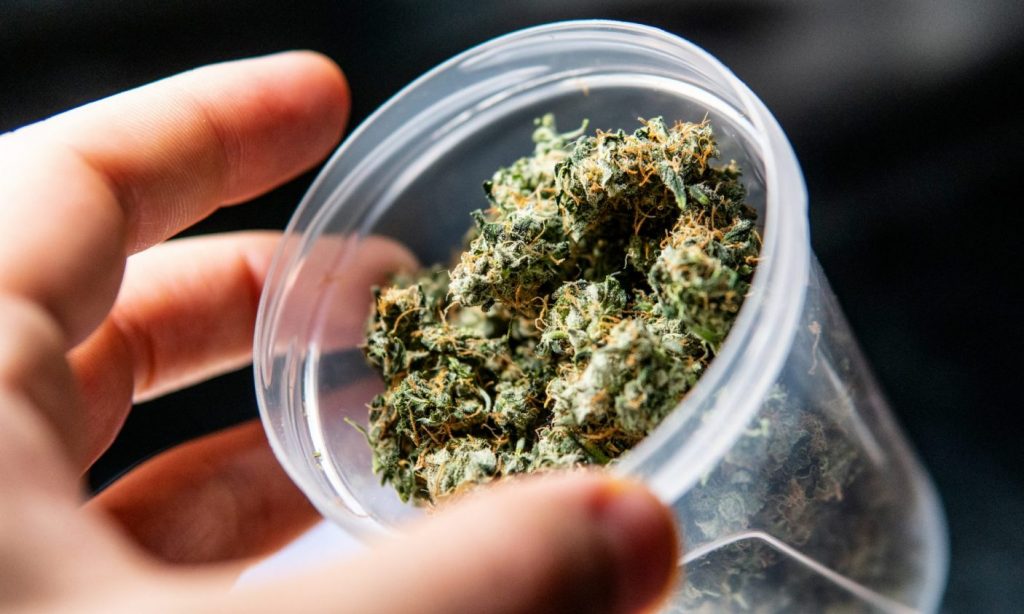
Because of this, shipping marijuana may already be legal in the United States
A legal paper by Vanderbilt, “Interstate Commerce in Cannabis,” published in the Boston University Law Review shows that shipping cannabis to other states may already be legal and that the cannabis industry has more storylines ahead.
The day the earth stood still is how science fiction might frame Vanderbilt Law’s new legal review by Robert Mikos. To sum up the legal review of the current marijuana industry, Mikos concludes a couple of things, let’s say:
Photo by Khwanchai Phanthong from Pexels
Interstate commerce is likely already legal due to the Dormant Commerce Clause (DCC) in the US Constitution.
From the summary:
It challenges conventional wisdom that the federal marijuana ban leaves legalizing states a free hand to discriminate against outsiders in their local cannabis markets. It also exposes the justifications states have put forward in defense of such discrimination, including the notion that a ban on interstate trade is necessary to prevent federal crackdown on the state-licensed cannabis industry. The essay concludes that the restrictions that legalizing states are now imposing on the interstate trade in cannabis are likely to violate the Dormant Trade Clause (DCC). The essay also examines the implications of this legal conclusion for the future of the cannabis market in the United States.
Full legalization will create an industry with few dominant players due to economies of scale and mass prices.
In areas with lower labor and electricity costs, job creation and business volume will increase, while areas with higher labor and fixed costs will increase and jobs will be relocated to cheaper countries. From the summary:
It suggests that without the barriers states have put in place to protect local businesses, a new generation of large, national cannabis companies focused on a handful of cannabis-friendly states will likely dominate the cannabis market. This development could dampen the incentive for new states to legalize cannabis and further reduce the participation of minorities in the cannabis industry. Legislation by Congress may be required to allay these concerns, as individual states have only limited opportunities to shape the national market and the companies that compete in it.

Full legalization will be a step backwards for social justice and economic empowerment movements as states have only so much power to create “protective” business opportunities for these applicants …
… and the federal government would have to intervene and help if real growth can be seen for SE and EE applicants.
Government decisions to prohibit outsiders from owning or participating in cannabis industries would most likely fail to withstand legal challenges …
… as we’ve seen in states like Maine. The state’s discriminatory measures to restrict licenses to residents only are being repealed by federal fair trade practices and interstate trade rules. From the conclusion of the paper:
However, the state laws that support these local industries are legally questionable. The discriminatory restrictions that states have placed on the international trade in cannabis are likely unconstitutional under the DCC. For one thing, Congress has not suspended the application of the DCC’s non-discrimination legislation. The federal ban on all marijuana trafficking simply doesn’t give legalizing states a license to discriminate against outside cannabis companies and investors. In addition, states lack a credible legitimate rationale for eliminating interstate cannabis trade if they allow domestic cannabis trade. In short, to the extent that states allow all cannabis trafficking, they will likely have to equate outside companies and investors with locals.
If you’re in the industry, some of the paper’s conclusions about large MSOs and economies of scale adoption are well-debated items. State regulations for local property have already been challenged and overturned in court. Yes, social justice and economic empowerment candidates can stay in the dust with full legalization unless the federal government intervenes.

One strange argument that was not taken into account in the paper is that when cannabis margins are in a “race to the bottom” where growers are relocated to cheaper areas based on labor costs, electricity and water, what happens when that is US Federal Legalization Reaches UN? Yes, areas with lower labor and production costs can attract marijuana jobs, but what happens when much cheaper places like Mexico, Brazil, Colombia and Costa Rica start exporting their cannabis production? It will not be a US race for the lowest cost, but an international race to bottom. Based on how fruits, vegetables, auto parts, wood, and other international companies work, the US may not be the largest or best cannabis producer in the world.
RELATED: USPS Proposes Exemption for PACT Act Compliance for Shipments of Hemp and CBD Products
Once the US federally legalizes the plant, the UN will have to amend its drug treaties and now 163 other countries can grow cannabis and export it without fear of the US judicial or financial system.
Can cannabis farmers in the Emerald Triangle grow marijuana cheaper than Mexican farms south of San Diego? Conventional wisdom says no.
Will a cannabis company deliberately ship cannabis across a state border and document it to challenge the legal position that although marijuana is a List 1 drug, it cannot cross state borders under the CSA rules of Appendix 1? Probably not because of Schumer’s recent introduction of the CACO legalization law. The industry will wait and see how the voting and lobbying work for this bill turns out. Many hope for a pleasant surprise as Amazon and conservative billionaire Charles Koch are now backing the legalization of cannabis.
RELATED: Going into space isn’t the only way Jeff Bezos wants to get high
Time will tell if anyone is shipping cannabis with the intent of getting caught and challenging the rules of Appendix 1 with the dormant trade clause lawyers.
The paper is 40 pages long and easy to read, even for non-lawyers. It’s a must have for cannabis enthusiasts and pro-cannabis lawyers.
This article originally appeared on Cannabis.net and was republished with permission.

Post a comment: